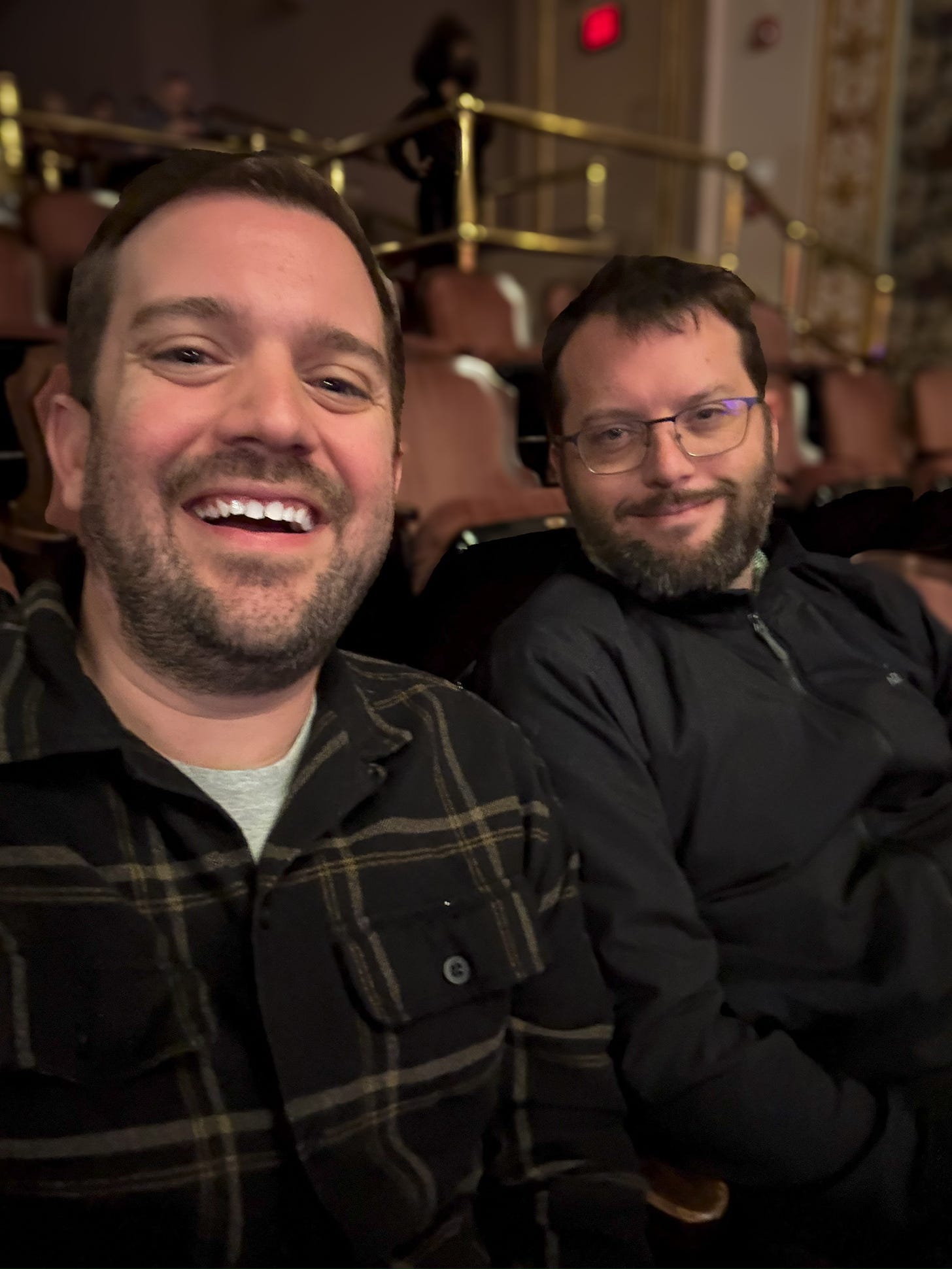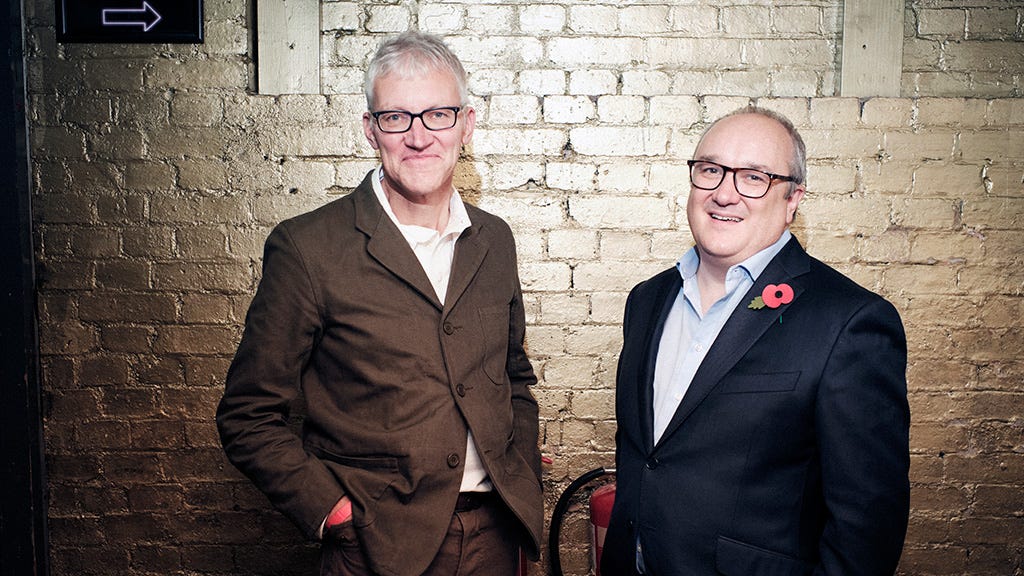On Saturday night, my brother Andy and I had the opportunity to attend The Rest Is History Live Show in Washington, D.C. As fans of the podcast, we were excited to experience the wit, charm, and historical expertise of Tom Holland and Dominic Sandbrook in person at the Lincoln Theater.
Before the show started, the hosts invited listeners to submit questions to be answered during the show. Excited by the opportunity, I sent in my question, hoping it might start an engaging discussion. To my surprise and delight, they not only answered it but used it to explore one of their key themes: the role of narrative in their episodes.
Below is the transcript of their thoughtful response to my question
How do you balance storytelling and historical accuracy when presenting complex topics?
Narrative's Importance
Tom Holland: I think what we have found doing the podcast is that narrative is pretty essential to it, isn't it? So we are aware that we do fewer episodes, say, on social history. And I think the best episodes that we've done on social history have been episodes with narrative.
Titanic Example
Tom Holland: And I think particularly the Titanic, where we thought it was going to be one or two episodes. I think six episodes, because in fact the story of the Titanic was the story of class divisions, of a whole array of people coming from different classes, different backgrounds, different countries meeting on this ship, and obviously being joined in this terrible tragedy.
And I think if we set out to do an episode on social life in the Atlantic world of the Gilded Age, that would be much, much harder to track it as a podcast. But the story of Titanic made it much easier.
Narrative as a Framework
Tom Holland: So I think that we both passionately feel that narrative reveals a great deal about a period. It's not just the story itself, it's about the fact that it can serve as a clothes hanger from which you can hang so much else, so much kind of analysis.
Audience Feedback
Dominic Sandbrook: Yeah, absolutely. I totally agree with that. I think when we asked people which episodes they enjoyed most, it’s almost always the one with a very strong narrative.
Early vs. Current Format
Dominic Sandbrook: And when we started the podcast, it was just general wittering. And now it's much more we follow a storyline.
Tom Holland: Structure.
Dominic Sandbrook: Yeah, structure. And actually, the stories do that, it is not just a podcast.
French Revolution as an Example
Dominic Sandbrook: So there's been a talk about the French Revolution. There was a book which I reviewed about two or three years ago by a British historian, Colin Jones. And it's about the fall of Robespierre in the French Revolution.
And it covers just about two days. It's about 500 or 600 pages, just on two days. So it's almost a minute by minute. And they can do that because they have very, very detailed police records. And that book captures better than any book I've read. Even better than that favorite book, Simon Schama’s Citizens.
It captures the contingency and the uncertainty of the revolution. That at any moment, no one knows what's going on. Things can work out in another way. There's a sense of chaos and of confusion, almost anarchy.
Contingency in Historical Events
Dominic Sandbrook: And I think too often, historians take that out of history. And concentrating on the blow by blow of the narrative puts that back in. Because the great mistake I think that historians often make is they write as though the future was always written. And I think remembering that it was always uncertain is key to making epic science a challenge.
Tom Holland: And I think it has become a trend, more generally, you know, coming from academic writing as well as podcasting and what many have studied, to focus on precisely what you said, the element of contingency in events.
So we, I think, feel this very strongly looking at two of probably the most famous examples of a dramatic rupture of the French Revolution and the outbreak of the First World War. And for most of our lives, they have been explained in terms of grand overarching theories, whether they were Marxist ones or in terms of nationalism or whatever, big abstract matters, I'm into a fondness to. But I think when you look at it as something that could happen very differently, you then have a sense of how important events are, how important contingency is.
And I think you can apply that to recent events. It wouldn't have taken much, for instance, to change the result of this election. But because the election has gone the way it is, all kinds of broad sweeping theories are being piled up in elections.









Share this post